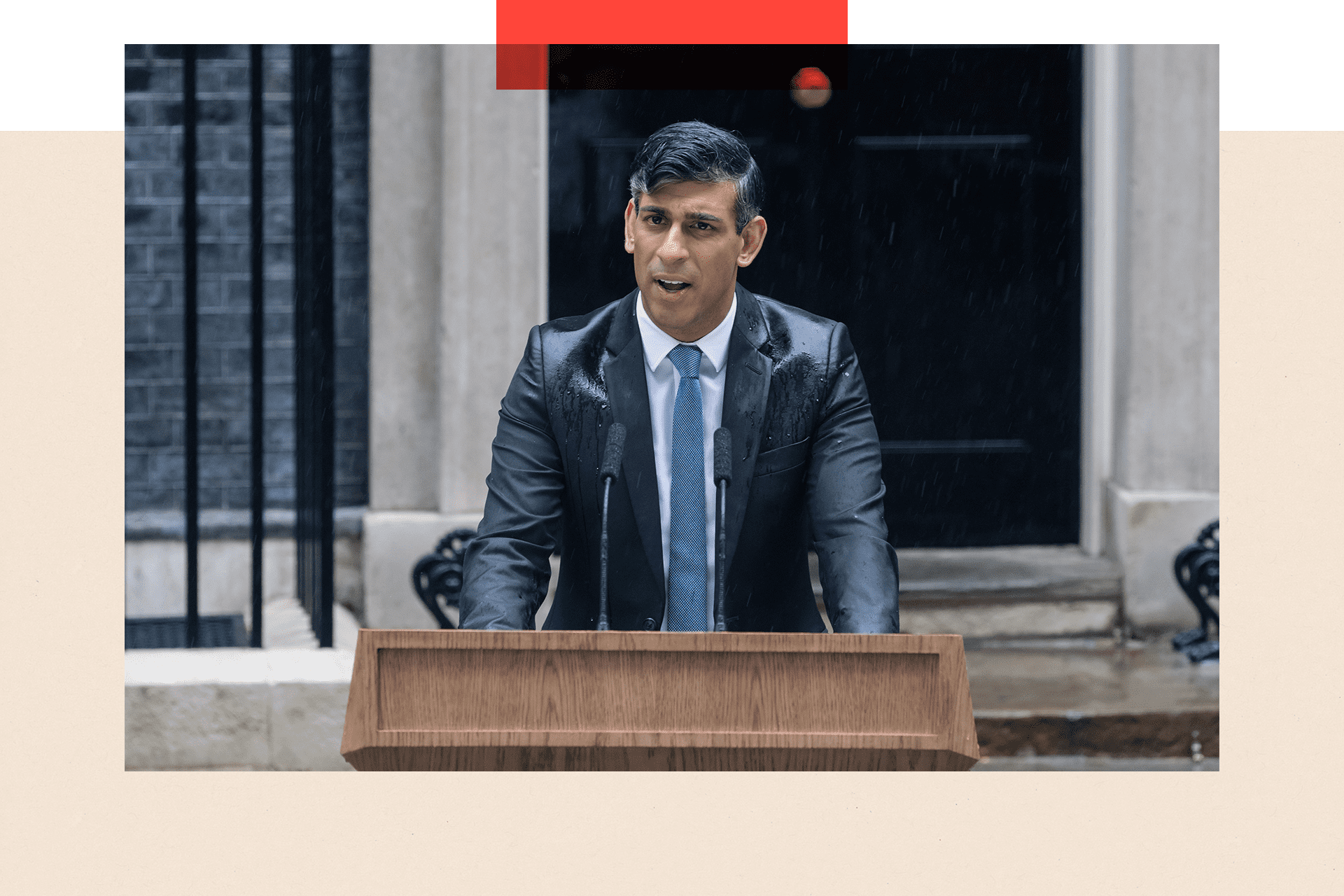
MPs hate it when you say Parliament goes on holiday.
The technical term is "recess", when the green benches empty and the arguments fall silent.
Our esteemed representatives rightly point out that many of them work over the summer, whether as ministers in the government or the important work of helping their constituents.
But we are, very nearly, at what might more accurately be called the "end of term" (recess begins 30 July). The world looks very different to the previous session of Parliament – Keir Starmer’s just been pictured at his third cabinet meeting, hosting Ukraine President Volodymyr Zelensky.
So how do the parties’ end-of-term reports read in summer 2024?
Labour: Stunning victory - but it will get harder
Labour's term could hardly have been better.
The election they craved arrived when they didn’t expect it but they were ready to roll and their plans unfurled more or less without incident, aided by a series of unfathomable Tory errors.
And despite murmurs that they won without much enthusiasm, the party’s strategy - maximise the number of seats in Parliament, not just piling up votes - paid off with a stunning majority.
There are grumbles at the back of the class about a lack of left-wing edge and pockets of bad feeling over Gaza. But Labour passed the most important public test.
Now it gets even harder.
For Labour insiders, it's a sudden and daunting change. One source told me: "You spend years in opposition with small teams trying to do the impossible, in a desperate fight to get heard. Now we have large teams, and our words are powerful, they carry further and are louder too."
The stage management of the first few weeks has been smooth, barely a hint of a frown in front of a camera or a waving flag out of place.
One of Sir Keir Starmer’s ministers joked that around the cabinet table the PM seems a bit like a very committed headmaster gathering his prefects, ensuring they are all following his plans to the letter. They nod along, promising to hand their work in on time to avoid a ticking off.
But there have been reminders all around that even the most successful government is rarely a few hours from drama outside its control – a global IT meltdown or an attempted assassination of a US president. There is nothing easy about what lies ahead.
Conservatives: 'As bad as it gets'
Conservatives like to proclaim with confidence they are the natural party of government, at least in England. After the past few months, they might be foolish to be so sure.
It’s not just that they were pasted in the polling booths. It’s that their support from 2019 leached away in every direction - to Labour, Reform, and the Lib Dems too.
There is no one straightforward answer for getting back to anything that looks like a credible alternative to a new government running at full throttle.
"This is as bad as it gets," one Tory strategist said. "The problems were set in train two years ago. Liz Truss’s disaster followed by Rishi’s inaction and timidity [on] the big problems such as the NHS and migration.
"Barring any external shocks, Reform stand a very good chance of winning more seats in 2029. Who would want to be leader in these circumstances? The candidates all have significant weaknesses and likely won’t be PM."

But has the party even come to terms with what has happened?
Another senior Tory said they are "bruised, uncertain, and confused. There’s a good deal of delusion too - it’s everyone else’s fault, if only we’d kept Boris, Starmer’s going to screw it up anyway - it’s all nonsense."
As if it’s a metaphor for their confusion, Tory HQ has not yet even decided how to run the leadership contest yet, let alone who should take the reins.
Which voters should the Tories go after now?
- Published12 July 2024
SNP: Humbled in Westminster
After several years of turbulence and embarrassment, Scottish voters have taken a lump out of the SNP, who had been so dominant in Scotland for so long.
There are parallels with the Tories – voters frustrated at their constitutional adventures and struggling public services, and they lose out to Labour.
They are still in office, with the first minister in charge of the Scottish government in Holyrood controlling schools and hospitals.
But they’ve been humbled in Westminster, losing their prized third party status – which comes with public funding and speaking rights in the House of Commons.
Lib Dems: 'Cinnamon bun' strategy pays off
Those perks now go to the Lib Dems, who are totally and utterly delighted. Sir Ed Davey’s antics lured the broadcasters and press pack, and the party is convinced it generated huge positivity towards him.
The party believes in shaking up the voting system but they learned to play first past the post more effectively, "forensically and ruthlessly" targeting where they could win, a party source said.
And rather than trying to please all the people all of the time, they chose affluent leafy constituencies where they could try to turf out Tory MPs. It’s often nicknamed the "cinnamon bun" strategy - after where the posh bakery, Gail’s, has its sites.
Their 72 seats are more than they were expecting, but they didn’t come in surprising places - "every seat we won was on our whiteboard", a party source said.
The Lib Dems plan to use their much bigger platform to keep hammering their messages on health and social care. Their hope is that this is part of a longer journey of ambition that has put them within touching distance of the Tories.
Reform, Greens, and Plaid Cymru: How to build on election successes?
The switcheroo between the Lib Dems and the SNP isn’t the last thing that has shaken things up in the political universe this term.
Nigel Farage, finally, has a perch in Westminster, alongside several colleagues who claim it’s the start of Reform UK becoming a big force - rather than a group that’s professionally angry who manage to scoop up lots of votes but struggle to translate that into action.
The Greens also think this term has put them properly on the map.
They’d hate the comparison with Reform UK, but both parties have punched through with voters, albeit without clarity on how they will change policy.
Along with the success of some independent candidates over the last few months - notably claiming votes from Labour because of unhappiness in Gaza - both Labour and Conservatives ponder the effect of voices from the edge with nerves.
Another of the smaller parties is certainly alive and kicking: Plaid Cymru won both of its target seats at the election, ending up with four in total.
They are positioning themselves to make the most of Labour’s turmoil in Wales, with the departure of Vaughan Gething, the first minister, last week.
More from BBC InDepth
Bereaved families force law changes - why did it take so long?
- Published18 July 2024
Fourteen measures from the King’s Speech analysed by BBC experts
- Published17 July 2024
She's made her opening gambit. What's the chancellor's long game?
- Published14 July 2024
But without question this political term will be remembered for the start of a new government under Keir Starmer, who have made history already just by moving in.
Their number one task is to get the economy motoring and tomorrow on the show we’ll be speaking to the woman whose job it is to make that happen, the Chancellor, Rachel Reeves (tune in at 09:00 BST on Sunday on BBC One, or follow live online).
And on Monday night at 20:00 BST on BBC One we’re taking a closer look inside the brand new government.
For the drama of election night, the splendour of the King’s Speech, ministers’ first moments behind closed doors, we’ve been with three of the most important figures of this new era: Reeves, the Foreign Secretary David Lammy, and the Health Secretary Wes Streeting.
From holding their breath as the exit poll dropped to taking the call when former US President Donald Trump was shot, you’ll see what it’s really been like on the inside as they get to work.
BBC InDepth is the new home on the website and app for the best analysis and expertise from our top journalists. Under a distinctive new brand, we’ll bring you fresh perspectives that challenge assumptions, and deep reporting on the biggest issues to help you make sense of a complex world. And we’ll be showcasing thought-provoking content from across BBC Sounds and iPlayer too. We’re starting small but thinking big, and we want to know what you think - you can send us your feedback by clicking on the button below.
Get in touch
InDepth is the home for the best analysis from across BBC News. Tell us what you think.

